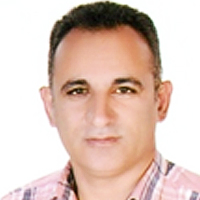Publish with Us
Mathematics & Physics Group
International Journal of Physics Research and Applications- ISSN:2766-2748 IJPRA
Chemistry Group
Biology Group
Annals of Proteomics and Bioinformatics- ISSN:2640-2831 APB
Archives of Biotechnology and Biomedicine- ISSN:2639-6777 ABB
Insights in Biology and Medicine- ISSN:2639-6769 IBM
Journal of Forensic Science and Research- ISSN:2575-0186 JFSR
Journal of Plant Science and Phytopathology- ISSN:2575-0135 JPSP
Pharma Group
Engineering Group
Clinical Group
Medical Group
priapism
Clinical Severity of Sickle Cell Anaemia in Children in the Gambia: A Cross-Sectional Study
- Lamin Makalo, Samuel A Adegoke, Stephen J Allen, Bankole P Kuti, Kalipha Kassama, Sheikh Joof, Aboulie Camara, Mamadou Lamin Kijera and Egbuna O Obidike
Published on: 8th January, 2025
Search by University/Institution
Enter your University/Institution to find colleagues at HSPI.
Ensuring author's satisfaction with
- Friendly and hassle-free publication process
- Less production time of articles
- Constructive peer-review
- Enhancing journal reputation
- Regular feedback system
- Quick response to authors' queries
Most Viewed Keywords
- Biopsy
- Acquired factor VII deficiency
- Robertsonian translocations
- Pulmonary
- Xanthogranulomatosis
- GC-MS
- Ambient temperature
- System and synthetic biology
- COVID-19
- Acute pneumonia
- Caregiver
- Preterm premature rupture of membranes
- Cannabis
- Coumarin
- Gravity
- Adolescence
- C-reactive protein
- PET TAC
- Diabetes
- Nuclear medicine
Search Articles by Country
Get all latest articles in all Heighten Science Publications Inc journals by country.
Testmonials
![]()
It was a great experience publishing through JCICM. The article has reached out to several institutions. Appreciate your professional work. Hope to work with you again
Anas Wardeh
![]()
Thanks you and your colleague for the great help for our publication. You always provide prompt responses and high quality of service. I am so happy to have you working with me. Thanks again!
Diana (Ding) Dai
![]()
Your service is very good and fast reply, also your service understand our situation and support us to publication our articles.
Ayman M Abu Mustafa
![]()
I wanna to thank Clinical Journal of Nursing Care and Practice for its effort to review and publish my manuscript. This is reputable journal. Thank you!
Atsedemariam Andualem
![]()
Archives of Vascular Medicine is one of the top class journal for vascular medicine with highly interesting topics. You did a professional and great Job!
Elias Noory
![]()
"It was a pleasure to work with the editorial team of the journal on the submission of the manuscript. The team was professional, fast, and to the point".
Moran Sciamama-Saghiv
![]()
In my opinion, you provide a very fast and practical service.
Ahmet Eroglu
![]()
It has been a fabulous journey writing articles for your journal because of the encouragement you people provide for writers from developing nations like India. Kindly continue the same. Looking forwa...
Badareesh Lakshminarayana
![]()
I want to thank you for our collaboration. You were fast and effective with a positive spirit of teamwork. I am truly excited from our collaboration. You were like always fast, efficient and accurate...
Aikaterini Solomou
![]()
I am delighted and satisfied with. Heighten Science Publications as my manuscript was thoroughly assessed and published on time without delay. Keep up the good work.
Dr. Shuaib Kayode Aremu
HSPI: We're glad you're here. Please click "create a new Query" if you are a new visitor to our website and need further information from us.
If you are already a member of our network and need to keep track of any developments regarding a question you have already submitted, click "take me to my Query."




